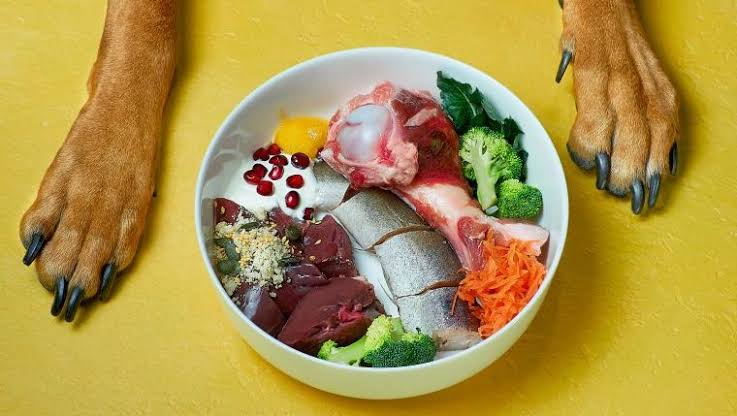
Safe and Unsafe Ingredients in Homemade Pet Food
Feeding your pet a homemade diet can be rewarding, but it's crucial to understand which ingredients are safe and which can be harmful. This guide will provide you with a comprehensive list of safe and unsafe ingredients to ensure your pet's health and well-being.
🐶 Pet Star
10 min read · 31, Jan 2025

Safe Ingredients:
- Lean Proteins:Chicken: A popular and readily available protein source. Always cook thoroughly to prevent salmonella.
- Turkey: Another excellent lean protein option.
- Beef: Choose lean cuts and trim off excess fat.
- Fish: Salmon, tuna (in water), and cod are good sources of omega-3 fatty acids.
- Eggs: A great source of protein and essential nutrients.
- Greek Yogurt: Provides protein and probiotics for gut health.
- Carbohydrate Sources:Brown Rice: A whole grain rich in fiber and nutrients.
- Sweet Potatoes: Excellent source of vitamins and minerals.
- Oatmeal: Provides fiber and essential fatty acids.
- Quinoa: A complete protein source with high fiber content.
- Healthy Fats:Olive Oil: Adds healthy fats and antioxidants.
- Coconut Oil: Supports skin and coat health.
- Flaxseed: Rich in omega-3 fatty acids.
- Fruits & Vegetables:Carrots: Good source of vitamins and fiber.
- Spinach: Rich in vitamins and minerals.
- Apples (without seeds): Provide vitamins and antioxidants.
- Broccoli: Contains vitamins, minerals, and fiber.
- Green Beans: A good source of vitamins and fiber.
- Blueberries: Provide antioxidants.
Unsafe Ingredients:
- Onions and Garlic: These vegetables contain compounds that can damage red blood cells in dogs and cats.
- Grapes and Raisins: Can cause kidney failure in dogs.
- Chocolate: Contains theobromine, a toxic substance for dogs and cats.
- Macadamia Nuts: Can cause weakness, tremors, and vomiting in dogs.
- Xylitol: An artificial sweetener that is toxic to dogs.
- Avocado: Contains persin, which can be toxic to some animals.
- Raw Meat and Bones: Raw meat can contain harmful bacteria, and raw bones can splinter and cause internal injuries.
- Dairy Products: Many dogs and cats are lactose intolerant and may experience digestive upset from milk, cheese, and yogurt.
- Processed Foods: Avoid feeding your pet processed foods like hot dogs, sausages, and deli meats. They are often high in sodium and preservatives.
- Moldy Foods: Discard any food that shows signs of mold, as it can be harmful to your pet.
Understanding Your Pet's Specific Needs
Remember that not all pets are created equal. Some may have sensitivities or allergies to certain foods.
- Consult with your veterinarian: They can provide personalized guidance on safe and appropriate ingredients for your specific pet.
- Start with a small amount: When introducing a new ingredient, start with a small amount and monitor your pet for any adverse reactions.
- Keep a food journal: This can help you identify any potential food sensitivities or allergies.
Important Considerations
- Nutritional Balance: Ensure your homemade pet food provides a balanced source of protein, carbohydrates, fats, vitamins, and minerals.
- Calcium and Phosphorus: These minerals are crucial for bone health, especially for growing pets.
- Vitamin D: Essential for calcium absorption.
- Omega-3 Fatty Acids: Supports skin, coat, and brain health.
- Supplementation: You may need to supplement your pet's diet with certain nutrients, such as taurine for cats.
Q&A Section
Ques 1: Can I give my pet any kind of fish?
Ans: While some fish are safe, avoid feeding your pet raw or undercooked fish, as it can contain parasites. Also, limit the amount of tuna you feed your cat, as excessive consumption can lead to mercury toxicity.
Ques 2: Are all vegetables safe for my pet?
Ans: Most vegetables are safe, but avoid feeding your pet large amounts of onions, garlic, and avocados.
Ques 3: Can I give my pet table scraps?
Ans: While occasional table scraps may not harm your pet, it's best to avoid feeding them regularly. Many human foods are high in salt, fat, and sugar, which can be detrimental to your pet's health.
Ques 4: What if my pet accidentally eats something toxic?
Ans: If you suspect your pet has ingested a toxic substance, contact your veterinarian or the nearest animal poison control center immediately.
Similar Articles
Find more relatable content in similar Articles

Composting Pet Waste: A Greener Way to Clean Up...
As pet ownership continues to .. Read More

Pets and Mental Health: The Science Behind Emotional H..
Discover the profound impact o.. Read More

Virtual Vet Visits: Are Online Consultations Reliable?..
As pet healthcare embraces dig.. Read More

Social Media for Pets: Turning Your Pet into a Digital..
From playful puppies to charis.. Read More
Explore Other Categories
© 2024 Copyrights by rPets. All Rights Reserved.